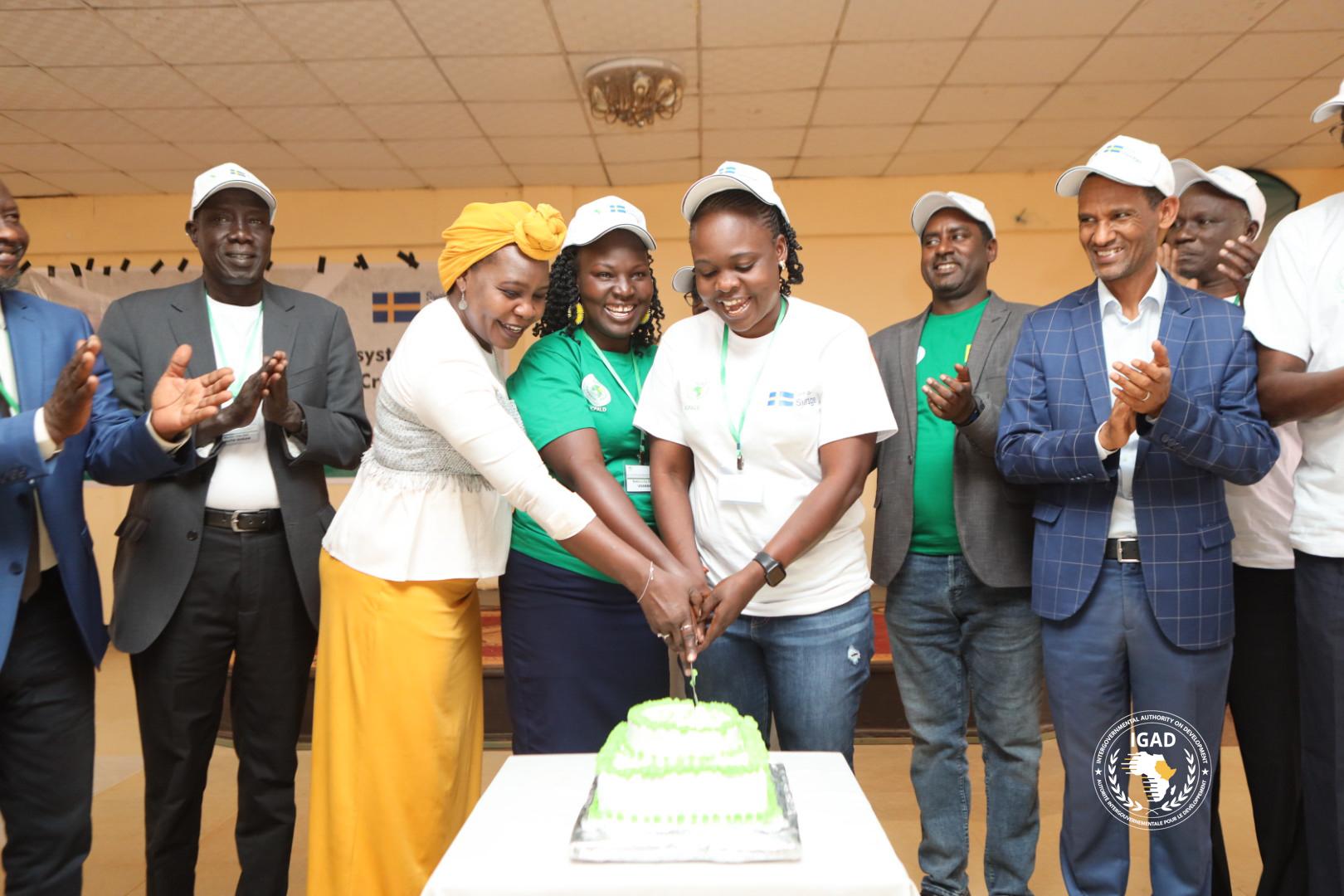March 18, 2023 (ASSOSA, Ethiopia): The Intergovernmental Authority on Development (IGAD) today launched the Sustainable Ecosystem Management (SEM) project at the closing of a two-day meeting at the cross-border town of Assosa in Benishangul-Gumuz Region West of Ethiopia.
The three-year project is meant to enhance rangeland management in the cross-border areas between Ethiopia, South Sudan, Sudan, and Uganda. It comes at a critical time when the IGAD region is facing a drought that has negatively affected pastoralists’ livelihoods and influenced pastoral mobility trends locally and in trans-border areas of the region.
Speaking at the opening session on behalf of the IGAD Executive Secretary, the Director of IGAD Centre for Pastoral Areas and Livestock Development (IGAD CPALD), Dr. Dereje Wakjira, emphasised that IGAD is committed to strengthening the resilience of cross-border communities in the IGAD region through cluster-based approach projects on climate, drought, pastoralism and food security, among many others.
“This undertaking is important because it addresses how to manage scarce natural resources sustainably to increase the resilience of communities that largely rely on rangelands,” he added.
Present at the opening session was the advisor to the State Minister for the Livestock and Fisheries Resource Development Sector of Ethiopia, Dr. Yohannes Girma, who underscored the trade opportunities in the cross-border areas.
“This project will contribute its part in unlocking the development and livelihood challenges of our cross-border communities of Sudan, South Sudan, Uganda, and Ethiopia, and we believe that the communication that will be created through this project will further strengthen cross-border coordination, collaboration, partnership, and in fact support a peace-building effort in those areas,” he noted.
Representing the Local government, the Head of Benishangul-Gumuz Regional State Bureau of Agriculture, Mr. Babekir Halifa, noted that the communities inhabiting the target areas are one and the same in religion, culture, and other related aspects. “Therefore, helping them to improve the management of natural resources will go a long way to build the resilience of the pastoralists living in the areas,” he stated.
The SEM project will be implemented by IGAD CPALD in close collaboration and partnership with relevant government ministries, other non-governmental organisations, and within communities.
The team will be guided by a Project Steering Committee (PSC) that will meet once per year to review the project implementation status and give necessary guidance to enhance efficiency.
The project implementation will focus on the communities along the cross-border areas of Ethiopia (Benishangul-Gumuz Region), Sudan (Blue Nile Region), and the Karamoja cluster of Uganda (Kaabong District), South Sudan (East Kapoeta County).
Through this project, IGAD intends to increase understanding of the status of rangelands, increase feed and fodder availability, and diversify the livelihoods of pastoralists and agro-pastoralists.
The expected outcomes of the Project are:
- Improved rangeland health and availability of animal feed;
- Improved income for target cross-border communities through established business incubation centres;
- Regulated cross-border livestock movement and trade through the established cross-border border post; and
- Defined migratory livestock routes through demarcated livestock stock routes and wildlife corridors, reducing conflict between pastoralists and farmers.
This Project is supported by the Government of Sweden.
Click here to download the SEM project Brochure.
Watch project launch videos:

